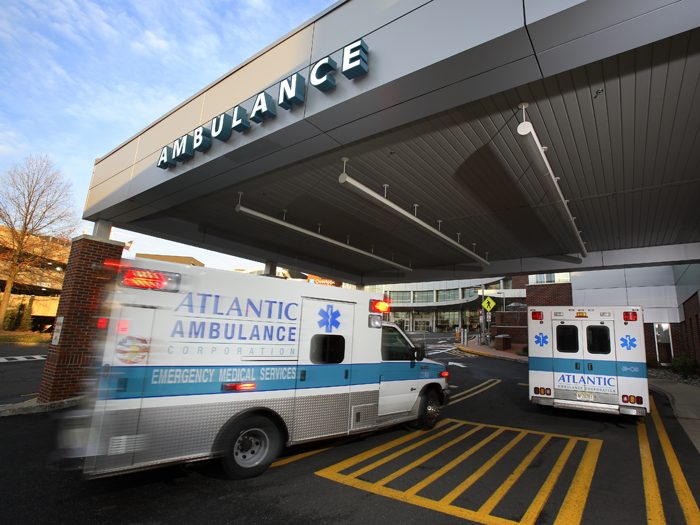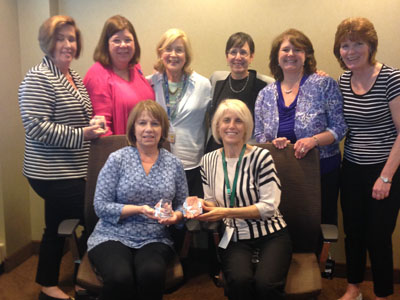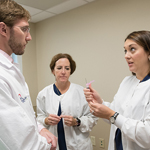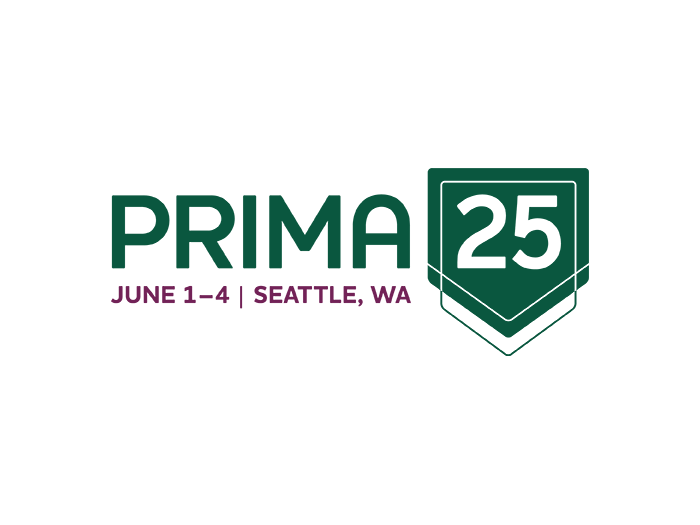2016 Teddy Awards: Honorable Mention
Saving Time and Money

Putting together a Lean Six Sigma Project at Atlantic Health System made all the difference to its workers’ compensation results.
A retrospective review in 2014 of 2013 work injuries revealed that back and shoulder injuries were the most frequent and had the highest costs, said Linda Reiher, manager of occupational medicine service, at the organization that has five hospitals and nearly 16,000 employees in New Jersey.
The average days out of work for these types of injuries was 41 days in 2013, she said. “Having an employee out of work costs AHS money.”
After analyzing the data, Atlantic Health realized that there were delays in various steps in their workers’ compensation process.
“From reviewing our data, I noticed obtaining imaging and specialist appointments were responsible for some of these delays,” she said.
To provide more focused care, the nonprofit organization hired Donna Brucker, a registered nurse, to fill the newly created position of RN workers’ compensation case manager. In the past, nurse practitioners did most of the case management for workers’ comp cases, but they had a great many other responsibilities as well, thus leaving little time for effective case management, Reiher said.
“Although case management was important, things were not operating as efficiently as they should ,” Reiher said.

The Atlantic Lean Team: left to right, bottom row: Margaret Skurka, Linda Reiher. Top row: Beth Del Pino, Laureen O’Rourke, Joanne Brubaker, Rachel Leibu, Donna Naturale, Donna Brucker
That has changed with the addition of Brucker, as well as Laureen O’Rourke as the coordinator who is responsible for assisting with the management of some of the sites, she said.
“Case management is Donna Brucker’s primary focus and both nurses are vigilant about shepherding the patient throughout the recovery process,” Reiher said.
“The Lean Project’s initial goal was to reduce out-of-work days [lost time] from 41 days to 35 days,” she said. “We were able to reduce our out-of-work days from our goal of 35 days to just 9 days, an 80 percent decrease.”
Atlantic Health System also saw a 70 percent reduction in the amount of time it took to schedule appointments to see a specialist, and a significant reduction in time from injury date to the first Occupational Medicine Service (OMS) appointment. This metric was reduced from eight days to 1.4 days.
The Lean project pilot had an estimated savings of more than $900,000 in workers’ compensation costs.
“The Lean project was a big success,” Reiher said, noting that it earned an Organizational Effectiveness President’s Award from Atlantic Health System.
“The most important thing,” said Dr. Rachel Leibu, medical director, OMS, “is we maintained continuity of patient care and we were able to effectively manage workers’ compensation injuries, minimize costs and provide excellent care to employees.”
“The Lean Project’s initial goal was to reduce out-of-work days [lost time] from 41 days to 35 days. We were able to reduce our out-of-work days from our goal of 35 days to just 9 days, an 80 percent decrease.” — Linda Reiher, manager, occupational medicine service, Atlantic Health System
To help protect the health of its patients and employees, OMS instituted a mandatory vaccination program in 2013 to protect against influenza and pertussis. They also more recently introduced iPad technology to help control costs related to its mandatory flu vaccine campaign. The new system better tracks compliance with the initiative by reducing the number of illegibly signed paper consent forms and potentially misplaced lost paperwork, as well as decreasing data entry and electronic medical record scanning time.
An electronic Flu Dashboard assists management with tracking employee vaccination status. The dashboard also provides for efficient identification of employees who were granted vaccine exemptions for medical or religious reasons, Leibu said. Exempt employees who are not vaccinated must wear masks when entering an AHS clinical facility when a threshold level of activity exists in the community.
Technology has also aided Atlantic Health in tracking injuries that are trending upward, so that safety initiatives can be instituted when a hazard is revealed, she said.
For example, dim lighting and multiple electric cords in operating rooms were causing tripping hazards. A process to bundle the device cords together while increasing education about the hazard reduced incidents, Leibu said.
Atlantic Health also began mandatory classes for nurses and other employees to help protect them from workplace violence, which is a national safety hazard in the health care field. The classes include education on how to diffuse situations when visitors or patients act out as well as self-defense methods.
For its success in enhancing its workers’ compensation processes, Atlantic Health System was awarded a 2016 Teddy Award Honorable Mention. &
_______________________________________________________
Read more about the 2016 Teddy Award winners:
 Bringing Focus to Broad Challenges: Target brings home a 2016 Teddy Award for serving as an advocate for its workers, pre- and post-injury, across each of its many operations.
Bringing Focus to Broad Challenges: Target brings home a 2016 Teddy Award for serving as an advocate for its workers, pre- and post-injury, across each of its many operations.
 The Road to Success: Accountability and collaboration turned Hampton Roads Transit’s legacy workers’ compensation program into a triumph.
The Road to Success: Accountability and collaboration turned Hampton Roads Transit’s legacy workers’ compensation program into a triumph.
 Improve the Well-Being of Every Life: Excela Health changed the way it treated injuries and took a proactive approach to safety, drastically reducing workers’ comp claims and costs.
Improve the Well-Being of Every Life: Excela Health changed the way it treated injuries and took a proactive approach to safety, drastically reducing workers’ comp claims and costs.
 The Family That’s Safe Together: An unwavering commitment to zero lost time is just one way that Harder Mechanical Contractors protects the lives and livelihoods of its workers.
The Family That’s Safe Together: An unwavering commitment to zero lost time is just one way that Harder Mechanical Contractors protects the lives and livelihoods of its workers.
More coverage of the 2016 Teddy Awards:
Recognizing Excellence: The judges of the 2016 Teddy Awards reflect on what they learned, and on the value of awards programs in the workers’ comp space.
Fit for Duty: 2013 Teddy Winner Miami-Dade County Public Schools is managing comorbid risk factors by getting employees excited about healthy living.
Saving Time and Money: Applying Lean Six Sigma to its workers’ comp processes earned Atlantic Health a Teddy Award Honorable Mention.
Caring for the Caregivers: Adventist Health Central Valley Network is achieving stellar results by targeting its toughest challenges.
Advocating for Injured Workers: By helping employees navigate through the workers’ comp system, Cottage Health decreased lost work days by 80 percent.
A Matter of Trust: St. Luke’s workers’ comp program is built upon relationships and a commitment to care for those who care for patients.
Keeping the Results Flowing: R&I recognizes the Metropolitan Water Reclamation District of Greater Chicago for a commonsense approach that’s netting continuous improvement.








